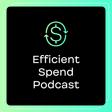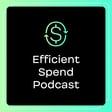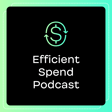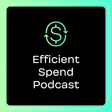
Media Mix Modeling for Ecommerce and Amazon Brands | Michael True of Prescient AI
SUBSCRIBE TO LEARN FROM PAID MARKETING EXPERTS 🔔
The Efficient Spend Podcast helps start-ups turn media spend into revenue. Learn how the world's top marketers manage their media mix to drive growth!
In this episode of the Efficient Spend Podcast, Michael True, CEO of Prescient AI, shares his approach to Media Mix Modeling (MMM) and how Prescient AI is reshaping the landscape of ad spend optimization. Michael delves into the nuances of rapid onboarding, campaign-level granularity, and leveraging triangulation for effective budget allocation, while also reflecting on the evolution of MMM in response to post-iOS 14.5 privacy shifts.
About the Host: Paul is a paid marketing leader with 7+ years of experience optimizing marketing spend at venture-backed startups. He's driven over $100 million in revenue through paid media and is passionate about helping startups deploy marketing dollars to drive growth.
About the Guest: Michael True is the co-founder and CEO of Prescient AI, an innovator in Media Mix Modeling and measurement technology. With a background in machine learning and analytics from roles at IBM, Oracle, and Opera Solutions, Michael is dedicated to empowering brands with rapid, campaign-level insights to optimize their paid media strategies.
VISIT OUR WEBSITE: https://www.efficientspend.com/
CONNECT WITH PAUL: https://www.linkedin.com/in/paulkovalski/
CONNECT WITH MICHAEL: https://www.linkedin.com/in/michaeljtrue/
EPISODE LINKS:
https://prescientai.com/blog/
https://support.apple.com/en-us/HT212023
https://www.facebook.com/business/help/974558639546165?helpref=search&sr=1&query=incrementality
https://hexclad.com/pages/about-us
https://www.applovin.com/blog/
https://www.shopify.com/blog/roas



